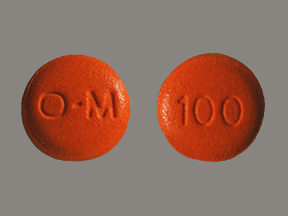A narcotic to relieve pain that is short term with moderate to severe intensity, Nucynta is a controlled substance in the U.S. and considered a narcotic. Nucynta is a prescription drug that behaves inside the body like morphine because it binds itself to opioid receptors. Its active ingredient is tapentadol.
Reward, addictive, and pain behaviors are all control by the body’s opioid system, with the receptors activated by endogenous peptides released by neurons. These receptors can be activated by alkaloid opiates as well; the prototype of an alkaloid opiate is morphine, the ubiquitous painkiller in modern medicine.
How Nucynta Works
An opioid analgesic that acts centrally is how Nucynta is classified because this medication works in both the spinal cord and the brain, which are in the body’s central nervous system. Its properties are similar to those found in some antidepressant medicines.
The tapentadol in Nucynta relieves the pain when it acts on particular nerve cells found in the brain and spinal cord. Tapentadol may be purchased under several brand names which may have the same Nucynta price and in different forms. It is taken orally every four or six hours.
Short-Term Side Effects
Like other medications, there are side effects which some users of Nucynta may experience. These side effects are treated rather easily, require minimal treatment if at all, and are tolerated by those who have experienced them:
· Vomiting
· Nausea
· Drowsiness
· Constipation
· Dizziness
· Headache
Because the tapentadol content in Nucynta could cause drowsiness, cognitive and physical abilities may be impaired, especially at the onset of treatment and/or dosage increase. Operating heavy equipment, machinery or vehicle is not advised because of said impairment.
Long-Term Side Effects
 Using Nucynta regularly can and will make the user dependent on it which may lead to addiction. Abrupt discontinuance of Nucynta use will produce withdrawal symptoms which may uncomfortable and unpleasant. Some of the following may be the result of prolong use of Nucynta:
Using Nucynta regularly can and will make the user dependent on it which may lead to addiction. Abrupt discontinuance of Nucynta use will produce withdrawal symptoms which may uncomfortable and unpleasant. Some of the following may be the result of prolong use of Nucynta:
- Abdominal cramps.
- Swelling of the throat and face.
- Hallucinations, fast heartbeat rate, shaking, excessive sweating, shivering, confusion, and involuntary jerking of the muscles which are all serotonin syndrome’s symptoms.
- Extreme sleepiness, cold and clammy skin.
- Unable to talk or walk in a regular fashion.
- Shallow breathing.
If any of these occur after you have been on Nucynta for several weeks, consult your physician immediately to rule out whether these are from medicating with Nucynta or something else entirely.
Drug Interaction
Although too many to include in the list here, the medications below are some of the medicinal drugs which Nucynta might have interaction with:
- Narcotic pain relief medication: fentanyl, oxycodone, codeine, and morphine.
- Amphetamines: lisdexamphetamine and dexamphetamine.
- Barbiturates.
- Lithium.
- Tricyclic anti-depressants: desipramine, imipramine, and amitriptyline.
Generic Alternatives
Because of its status as a relatively new pain reliever medicine, and opioid analgesic, to boot, Nucynta, as well as a Nucynta price, is unavailable generically as of this writing. Also, the brand name Nucynta is patent-protected until June of 2018, meaning, it cannot have generic versions until the present patent expires.
On a final note, tapenyadol is Nucynta’s active ingredient, not its generic version. A drug’s generic name is not the same as the generic version of a particular type of medication. Nucynta has to be off-patent before another manufacturer, besides the original, can make a generic version, and until and unless that happens, a Nucynta price cannot as yet be determined.
Share This